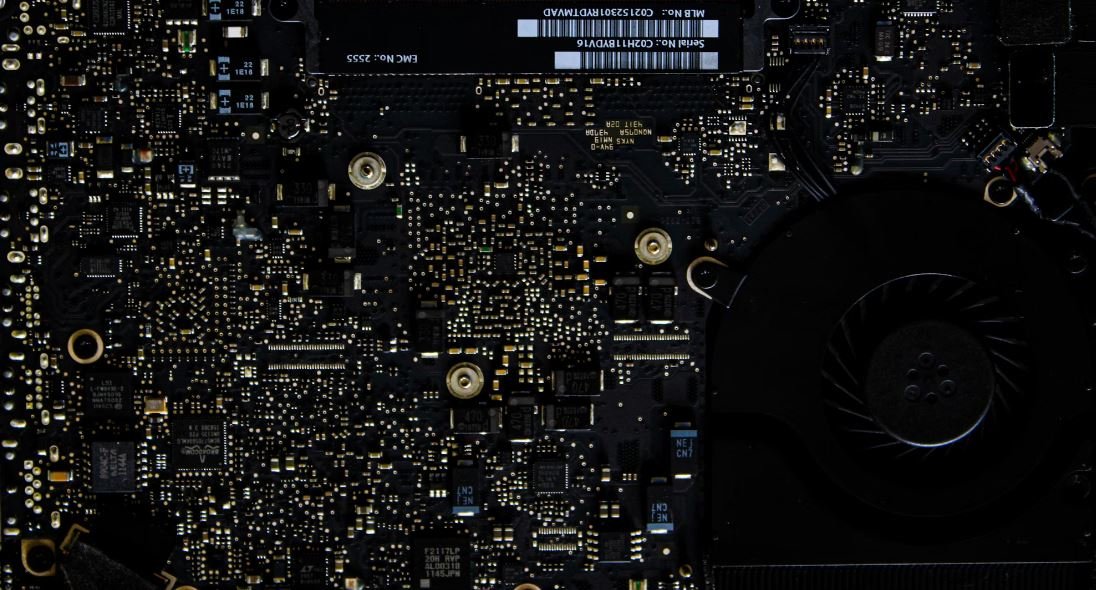AI Positive Things
Artificial Intelligence (AI) is advancing at a rapid pace and its impact can be seen in many different aspects of our lives. While there may be concerns about the potential negative effects of AI, it is important to also consider the positive things that AI brings to society. From improving healthcare to enhancing cybersecurity, AI has the potential to revolutionize various industries and make significant improvements in our everyday lives.
Key Takeaways:
- AI has the potential to revolutionize industries and improve various aspects of our lives.
- AI can enhance healthcare, cybersecurity, and efficiency in many different sectors.
- It is important to consider the ethical implications and ensure responsible use of AI technology.
Healthcare: AI has the potential to transform the healthcare industry by improving diagnostics, enhancing treatment plans, and providing personalized medicine. With the ability to analyze vast amounts of medical data, AI algorithms can assist doctors in making more accurate diagnoses and suggesting tailored treatment options. *AI-powered robotic assistants can also perform complex surgeries with enhanced precision, reducing the risk of human error and improving patient outcomes.
Cybersecurity: As technology continues to evolve, so do the threats that come with it. AI can play a significant role in safeguarding our digital world. By analyzing vast amounts of data and patterns, AI can detect and prevent cyber attacks, identify vulnerabilities, and assist in developing robust security measures. *Through its ability to learn and adapt, AI can constantly evolve to stay one step ahead of cyber criminals.
Efficiency: AI-powered systems can greatly improve efficiency in various industries. From streamlining manufacturing processes to optimizing logistics and supply chain management, AI can automate repetitive tasks, increase productivity, and reduce costs. *By leveraging AI, companies can focus on higher-value tasks while leaving routine operations to intelligent machines.
AI Applications in Healthcare
In the field of healthcare, AI is making significant advancements. It is being used in various applications such as:
- Medical imaging analysis: AI algorithms can analyze medical images with great accuracy, aiding in the detection and diagnosis of diseases.
- Drug discovery: AI can accelerate the process of drug discovery by analyzing vast amounts of data and identifying potential candidates more efficiently.
- Virtual assistants and chatbots: AI-powered virtual assistants and chatbots can handle patient queries, provide medical advice, and assist with appointment scheduling, improving patient experiences.
AI Advancements in Cybersecurity
The use of AI in cybersecurity is gaining importance as cyber threats become more sophisticated. Some notable AI applications in cybersecurity include:
| AI Application | Description |
|---|---|
| Behavioral analysis | AI can monitor user behaviors and identify anomalies that may indicate potential security breaches. |
| Automated threat detection | AI can autonomously detect and respond to emerging threats in real-time, reducing the response time to cyber attacks. |
Increasing Efficiency Through AI
AI’s impact on improving efficiency can be seen in different industries:
| Industry | AI Application |
|---|---|
| Manufacturing | AI-powered robots and automation systems can significantly enhance productivity and quality control in manufacturing processes. |
| Logistics | AI can optimize transport routes, schedule deliveries, and predict demand, reducing costs and increasing operational efficiency. |
It is important to approach the integration of AI with caution, considering ethical implications such as data privacy, algorithm transparency, and bias mitigation. Responsible development and deployment of AI technologies ensure a positive and inclusive impact on society, providing us with better healthcare, stronger cybersecurity, and more efficient systems.
With ongoing advancements and further research, the potential of AI to bring positive changes to our lives is limitless. We must continue to explore and harness its capabilities responsibly for the greater good of humanity.

Common Misconceptions
Misconception 1: AI is a threat to humanity
One of the most common misconceptions about AI is that it poses a significant threat to humanity. This perception is often fueled by sensationalist media portrayals and sci-fi movies. However, AI technologies are designed to assist and enhance human capabilities rather than replace them entirely.
- AI systems are created and programmed by humans, making them subject to human control and oversight.
- The primary purpose of AI is to tackle complex problems and provide valuable insights that help humans make better decisions.
- AI technologies are being used in various fields such as healthcare, finance, and transportation to improve efficiency and accuracy.
Misconception 2: AI will steal human jobs
Another common misconception is that AI will ultimately lead to widespread unemployment as machines take over human jobs. While AI does automate certain tasks, it also generates new job opportunities and augments human capabilities in the workplace.
- AI technologies can handle repetitive and mundane tasks, freeing up human workers to focus on more strategic and creative endeavors.
- AI can assist in decision-making processes by analyzing large amounts of data, providing valuable insights for humans to make informed choices.
- AI-driven automation may lead to job transformation rather than job elimination, with humans and machines working together in a collaborative manner.
Misconception 3: AI is infallible and unbiased
Contrary to popular belief, AI systems are not infallible and unbiased. They are only as good as the data they are trained on and the algorithms that govern their operations. Thus, AI technologies are prone to inheriting human biases and exhibiting unpredictable behavior.
- Biases in the data used to train AI can result in biased outcomes, perpetuating unfairness and discrimination.
- The algorithms used in AI systems may have inherent limitations and can sometimes produce erroneous or unexpected results.
- Ongoing research and efforts are being made to develop AI technologies that are more transparent, explainable, and fair to mitigate these concerns.
Misconception 4: AI will surpass human intelligence
While AI has made significant advancements, surpassing human intelligence remains a distant prospect. AI technologies excel in narrow domains and specific tasks but lack general intelligence and common sense exhibited by humans.
- An AI system may outperform humans in specific tasks such as image recognition or playing complex games, but it lacks the ability to understand and interpret context in a human-like manner.
- Human intelligence encompasses a wide array of qualities, including creativity, emotional intelligence, and moral reasoning, which are still beyond the capabilities of AI systems.
- The development of artificial general intelligence (AGI) – a level of AI on par with human intelligence – is an ongoing area of research and remains a significant challenge for the future.
Misconception 5: AI is a detached and impersonal technology
Although AI systems lack emotions and personal experiences, they can be designed to interact with humans in a more natural and personalized manner. This misconception arises from the perception that AI is solely focused on efficiency and lacks the ability to understand human emotions.
- Natural language processing and sentiment analysis techniques allow AI to understand and respond to human emotions, enabling more personalized interactions.
- AI-driven chatbots and voice assistants are being developed to provide empathetic and human-like support in various domains.
- AI technologies can be integrated with user preferences and feedback to create personalized experiences, adapting to individual needs and preferences.

AI in Healthcare
Artificial intelligence (AI) is revolutionizing the healthcare industry by providing advanced tools and technologies. The table below highlights some positive aspects of AI in healthcare.
| Benefit | Description |
|---|---|
| Improving Diagnostics | AI systems can analyze medical images and detect subtle abnormalities with greater accuracy and speed. |
| Personalized Treatment | With AI algorithms, healthcare providers can tailor treatment plans based on individual patient characteristics, improving outcomes. |
| Enhanced Drug Discovery | AI models can analyze huge datasets and identify potential drug candidates, accelerating the discovery process. |
| Remote Patient Monitoring | AI-powered devices can collect and analyze patient data remotely, enabling proactive healthcare interventions. |
AI in Education
Artificial intelligence is reshaping the landscape of education by offering innovative solutions to enhance learning experiences. The table below outlines some positive aspects of AI in education.
| Advantage | Description |
|---|---|
| Personalized Learning | AI-based systems can adapt educational content to the specific needs and capabilities of individual students. |
| Efficient Administrative Tasks | AI automation can streamline administrative tasks such as grading, scheduling, and student record management. |
| Smart Tutoring | AI tutors provide personalized guidance, recommend resources, and adapt teaching techniques to optimize learning outcomes. |
| Improved Accessibility | AI technologies enable text-to-speech, speech-to-text, and other assistive features to enhance accessibility for students with disabilities. |
AI in Transportation
Artificial intelligence is transforming the transportation sector by making it more efficient, safe, and sustainable. The table below showcases some positive impacts of AI in transportation.
| Positive Impact | Description |
|---|---|
| Traffic Optimization | AI algorithms can analyze traffic patterns, optimize routes, and reduce congestion, leading to shorter travel times. |
| Enhanced Safety | AI-powered systems can detect and respond to potential risks, assisting in accident prevention and reducing fatalities. |
| Autonomous Vehicles | AI enables self-driving vehicles that offer improved convenience, reduced emissions, and increased mobility. |
| Cargo Management | AI assists in managing inventory, optimizing supply chains, and improving the efficiency of cargo transportation. |
AI in Finance
Artificial intelligence is revolutionizing the financial industry by providing advanced analytics and decision-making capabilities. The table below highlights the positive aspects of AI in finance.
| Positive Aspect | Description |
|---|---|
| Fraud Detection | AI algorithms can analyze vast amounts of data to identify patterns and anomalies, helping in the detection and prevention of financial fraud. |
| Automated Trading | AI systems can analyze market data, execute trades, and manage portfolios autonomously, optimizing investment strategies. |
| Customer Service | AI chatbots provide instant customer assistance, personalized recommendations, and support for financial inquiries. |
| Risk Assessment | AI models can assess financial risks, predict market trends, and guide decision-making, enhancing investment performance. |
AI in Customer Service
Artificial intelligence is transforming customer service by automating processes and providing personalized support. The table below showcases some positive impacts of AI in customer service.
| Positive Impact | Description |
|---|---|
| 24/7 Support | AI-powered chatbots and virtual assistants can provide round-the-clock customer support, improving response times. |
| Personalized Recommendations | AI algorithms analyze customer data to offer tailored product recommendations, enhancing the customer experience. |
| Improved Efficiency | AI automation reduces manual tasks, streamlines processes, and allows customer service representatives to focus on complex issues. |
| Sentiment Analysis | AI systems can analyze customer feedback and sentiment, enabling companies to proactively address issues and improve satisfaction. |
AI in Agriculture
Artificial intelligence is revolutionizing the agriculture industry by introducing smart farming techniques. The table below outlines the positive impacts of AI in agriculture.
| Positive Impacts | Description |
|---|---|
| Optimized Resource Usage | AI-based systems can analyze weather patterns, soil conditions, and crop data to optimize irrigation and minimize resource wastage. |
| Precision Farming | AI technologies enable precise planting, crop monitoring, and pesticide application, leading to higher yields and reduced environmental impact. |
| Pest Detection | AI models can detect pests and diseases early using image recognition and sensor data, helping in timely interventions and crop protection. |
| Livestock Monitoring | AI systems track animal behavior, health indicators, and feeding patterns, optimizing livestock management and overall productivity. |
AI in Manufacturing
Artificial intelligence is reshaping the manufacturing sector by enhancing efficiency and productivity. The table below highlights the positive impacts of AI in manufacturing.
| Positive Impacts | Description |
|---|---|
| Quality Control | AI systems monitor production processes, detect defects, and ensure consistent product quality, reducing waste and increasing customer satisfaction. |
| Predictive Maintenance | AI algorithms analyze sensor data to predict equipment failures, enabling proactive maintenance and reducing downtime. |
| Optimized Supply Chains | AI technologies optimize inventory management, demand forecasting, and logistics, improving overall supply chain efficiency. |
| Worker Safety | AI-powered systems can identify safety hazards, monitor worker behavior, and ensure compliance with safety protocols, reducing accidents. |
AI in Entertainment
Artificial intelligence is transforming the entertainment industry by enhancing content creation and personalization. The table below showcases some positive impacts of AI in entertainment.
| Positive Impacts | Description |
|---|---|
| Content Recommendation | AI algorithms analyze user preferences and behavior to provide personalized movie, music, and content recommendations. |
| Enhanced Visual Effects | AI technologies, such as deep learning, enable realistic visual effects, improving the overall cinematic experience. |
| Virtual Assistants | AI-powered virtual assistants provide voice-activated entertainment control and interactive experiences for users. |
| Content Curation | AI systems can curate and organize large volumes of content, making it easier for users to discover and consume media. |
AI in Environmental Conservation
Artificial intelligence is playing a significant role in environmental conservation efforts. The table below outlines the positive impacts of AI in environmental conservation.
| Positive Impacts | Description |
|---|---|
| Wildlife Conservation | AI-powered camera traps and image recognition can help experts track and protect endangered species in their natural habitats. |
| Forest Monitoring | AI models can analyze satellite imagery and detect deforestation activities, aiding in the preservation of forests and biodiversity. |
| Climate Modeling | AI systems simulate complex climate models and help in predicting climate change, supporting sustainable decision-making. |
| Water Management | AI technologies assist in monitoring water quality, analyzing usage patterns, and optimizing water resource management. |
Artificial intelligence brings numerous positive impacts across various industries, revolutionizing processes, improving efficiency, and enabling new possibilities. From healthcare to transportation, education to entertainment, these tables illustrate how AI is transforming sectors and delivering valuable benefits. Leveraging AI technologies responsibly and ethically can unlock even more potential for positive change in the future.
Frequently Asked Questions
What are the potential benefits of AI?
AI has numerous potential benefits, including improving productivity, enhancing decision-making capabilities, providing personalized experiences, automating repetitive tasks, enabling safer and more efficient processes, contributing to medical breakthroughs, and advancing scientific research.
How can AI enhance productivity?
AI can enhance productivity by automating manual and repetitive tasks, enabling workers to focus on more strategic and complex work. It can also analyze large amounts of data quickly, identify patterns, and provide valuable insights for informed decision-making.
Can AI help in medical research and healthcare?
Yes, AI has the potential to revolutionize medical research and healthcare. It can assist in diagnosing diseases, predicting patient outcomes, discovering new drugs, and optimizing treatment plans. AI can analyze vast amounts of medical data and assist healthcare professionals in making more accurate and efficient decisions.
What impact can AI have on education?
AI can have a significant impact on education. It can personalize learning experiences, adapt to individual student needs, identify areas where students may be struggling, and offer tailored interventions. Additionally, AI can automate administrative tasks for teachers, freeing up their time to focus on instruction.
How can AI contribute to environmental sustainability?
AI can contribute to environmental sustainability by optimizing energy usage, reducing waste, and improving resource efficiency. It can monitor and control systems to minimize their environmental impact. Additionally, AI can assist in climate modeling, providing valuable insights for planning and mitigating the effects of climate change.
Can AI improve customer experiences?
Yes, AI can greatly improve customer experiences. Chatbots and virtual assistants powered by AI can provide instant and personalized support, answer frequently asked questions, and assist customers with their needs at any time. AI can also analyze customer data to offer personalized recommendations and suggestions.
What are the ethical considerations surrounding AI?
Ethical considerations surrounding AI include issues such as bias in algorithms, privacy concerns, job displacement, and the potential for AI to be used in malicious ways. It is important to develop responsible AI systems that prioritize fairness, transparency, and accountability, while also considering the potential societal impact.
Can AI be used for fraud detection and cybersecurity?
Absolutely, AI can be highly effective in detecting and preventing fraud, as well as enhancing cybersecurity. AI algorithms can analyze large amounts of data to identify patterns indicative of fraud or potential security breaches. It can also continuously learn and adapt to evolving threats, making it a valuable tool in ensuring digital security.
Can AI contribute to the development of smart cities?
Yes, AI can play a crucial role in the development of smart cities. It can optimize traffic flow, improve public transportation systems, monitor and manage infrastructure, enhance energy efficiency, and enhance urban planning. AI-powered systems can make cities more sustainable, livable, and efficient.
What are some ongoing challenges in AI research and development?
Some ongoing challenges in AI research and development include ensuring data privacy and security, addressing biases in algorithms, developing ethical frameworks, enabling AI systems to explain their decision-making processes, and creating regulations and policies that balance innovation with societal well-being.




